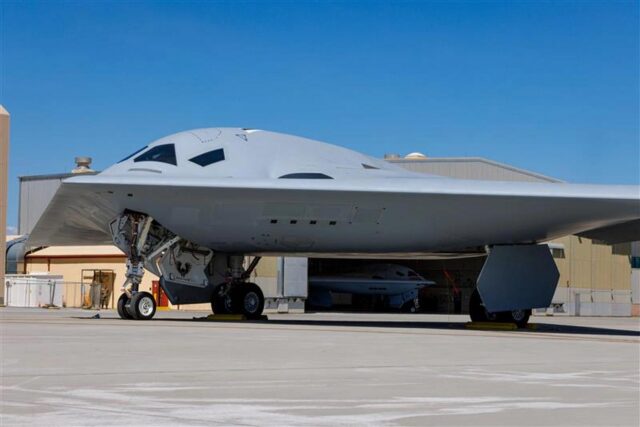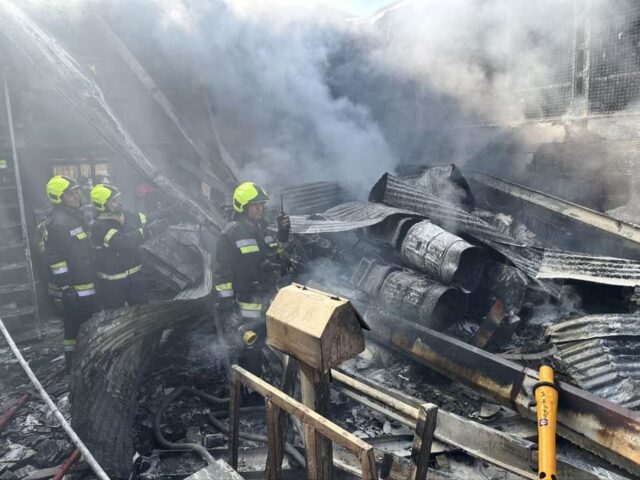Dassault chief outlines rising tensions in Trinational fighter programme
April 12, 2025

“Something is not working, so it needs to be reviewed. It’s not up to me to do that, it’s up to the states to get together to figure out how to better manage this ambitious program.” Trappier told the hearing of the National Assembly defence committee. “So, it is clear that there is something wrong. We must review, and it is not up to me to do it, it is up to the States, [to find] the way to better manage this ambitious programme.”

The Système de Combat Aérien du Futur (SCAF) or Future Combat Air System (FCAS) should not to be confused with the similarly named UK programme. It is a planned combat air ‘system of systems’ being jointly developed by France, Germany and Spain, with a new generation fighter (NGF), unmanned adjuncts known as Remote Carriers (RC), and an Air Combat Cloud (ACC) networking system together forming the Next Generation Weapons System (NGWS) at the heart of the family of systems.
Dassault is the prime contractor for the NGF, with Airbus serving as the German and Spanish partner, while Airbus is the prime for the associated adjuncts (UAVs) and effectors (weapons) working with MBDA.

There are a number of inherent tensions at the heart of SCAF/FCAS, some of which can be laid directly at Dassault’s door!
Dassault believes that its independent sovereign fighter design heritage and capabilities makes it the ‘best athlete’ and natural ‘head’ of the programme, and it is unwilling to share much of its intellectual property with its partners.

“Dassault’s definition of a collaborative partnership is one in which Dassault decides the direction and gets the workshare, and its partners sit back and pay the bills, gratefully accepting any crumbs that fall from the table,” one industry insider observed.
Though Germany has not produced a fighter from scratch, on its own, since the war, it has a long and proud heritage of advanced combat air design and manufacturing, not least through its participation in the multi-national Tornado and Eurofighter programmes. These owed much of their success to German design and engineering. Airbus (representing both Germany and Spain) has therefore long argued (perhaps with some justification) for parity of status with Dassault within the programme. It certainly expects a fair division of workshare, and, indeed, for leadership of different programme elements to be fairly divided.
Trappier is not convinced, and complains that Dassault as manager of the programme should not have to compromise for the sake of “geo return,” the practice of guaranteeing workshare proportional to their investment. “When you implement the geo return at every phase, it’s difficult,” Trappier complained, calling the practise: “absolutely deadly for setting up a European co-operation.”

Mr Trappier continues to argue for Dassault to have overall leadership of the entire project, and told the committee that: “I’m in favour of the air combat system being managed by a global project manager, who would design it around an aircraft […] rather than having this permanent division. The problem is the interfaces. Interface management, if you don’t have a leader at the top, doesn’t work.”
Dassault is known to harbour some resentment that Airbus was given leadership of the unmanned ‘capability pillar’ within SCAF/FCAS, believing that its demonstrated expertise with the nEUROn UAV meant that it should have had the lead. Clearer heads might argue that while the nEUROn airframe was a great achievement, German experience with advanced UAV operating concepts, including collaborative and swarming drones actually gave it an edge.
The governments of France and Germany together awarded the €155 million SCAF/FCAS Phase 1A initial framework contract on 12 February 2020. This covered an 18-month period and included the initial development work on a series of technology demonstrators and maturing the innovative technologies that would be required.
In December 2022 France, Germany and Spain awarded Dassault Aviation, Airbus, Indra Sistemas and Eumet a €3.2 billion ($3.6 billion) contract for phase 1B of the Future Combat Air System (FCAS), covering research, technology and overall design. Phase 1B covers the design of the NGF and Remote Carrier airframes and systems, a simulation environment, integration and test strategies, and the initial production strategy. This stage was expected to take about 3.5 years to complete and an NGF demonstrator was originally expected to be ready by the summer of 2026, though this subsequently slipped to the as yet unsigned Phase 2. A first flight is now scheduled for 2029.
Trappier told the National Assembly committee that Phase 2 “will focus on manufacturing,” but that it “will still take time. I remind you that we are only talking about a demonstrator.” Trappier said that the shape of the NGF had been decided and that: “we know how to manufacture it, to get it flying as quickly as possible. I would be very much in favour of speeding things up, I have said this from the beginning.”
But, Trappier said, “Now we will have to negotiate Phase 2, and so on. It’s complex and time-consuming. But if the States are willing, we can adapt. Though I’m not sure, it’s an efficient model… It’s not that Dassault Aviation doesn’t want to be involved. But it’s very difficult. We cannot divide up the work according to what we think. We have to compromise and negotiate constantly.” Trappier complained that: “each time we reopen pointless, endless discussions.”
“We have to convince even more in order to reach decisions, since we’re one against two. So it just takes a little longer. We’re in it. Dassault Aviation has no desire not to be in it. But it’s very difficult. We’re not able to divide up the work based on what we think. We have to compromise, negotiate constantly. We have to constantly accommodate, constantly negotiate. It’s what’s called permanent negotiation. I hope we will reach an agreement to move forward.”
Trappier claimed that if the NGF was to be produced as it is conceived today, with three partners, it would be more expensive. “Rafale will seem cheap to you,” he said. Trappier argues for Dassault leadership not only for cost, speed and efficiency, but also for strategic reasons.
“We have to weigh what we are giving up to our allies, which may be normal in European cooperation and in a desire for European integration. But that also means we will depend on each other.” Trappier warned that if France chooses a path of such mutual dependency with its allies, “there’s no going back,”
“Take my answer with a grain of salt, I don’t want to sound arrogant at all, but whose capabilities do I need other than myself, to make a combat aircraft? So I’m willing to cooperate and share. I’m not against it, but I’m the one with the skills.”
“We will do the NGF, as for with who, that’s not for me to answer. That’s up to the state, up to the politicians, to say whether we should work with our traditional allies or not.”
France requires the NGF to be both nuclear- and carrier-capable, imposing particular design constraints, while Germany requires interoperability with its newly-ordered F-35As, and could require the ability to carry a US nuclear weapon. If so, this would make it difficult to avoid some ITAR implications, which France is determined to avoid.
“With the SCAF, if I understand correctly what the public authorities are asking me, the need is to maintain the capacity to develop an aircraft for French nuclear deterrence. In this sense, the aircraft must be capable of carrying out its missions without any constraints from any foreign country, whatever it may be. So, I have that in mind. If this were ever not possible, I would say so, I would write it down, and therefore, normally, the program would stop.”
Airbus has issued more positive statements, and has sought to deflect attention from Trappier’s statements. The company has said that the FCAS programme has made “strong progress,” highlighting the achievement of the concept selection review within the phase 1B contract. “We are now on our way to phase 2 contracts. We are committed to FCAS, which represents the backbone of the European defense industry and strategic autonomy. We do believe in FCAS as a collaborative European industrial programme, even more so in the current geopolitical context. That is our commitment from the beginning, to pursue a system of systems that goes beyond a future European fighter.”
















